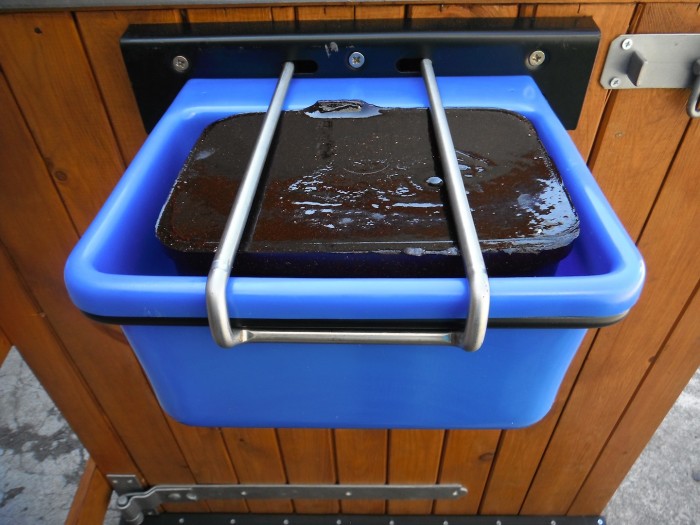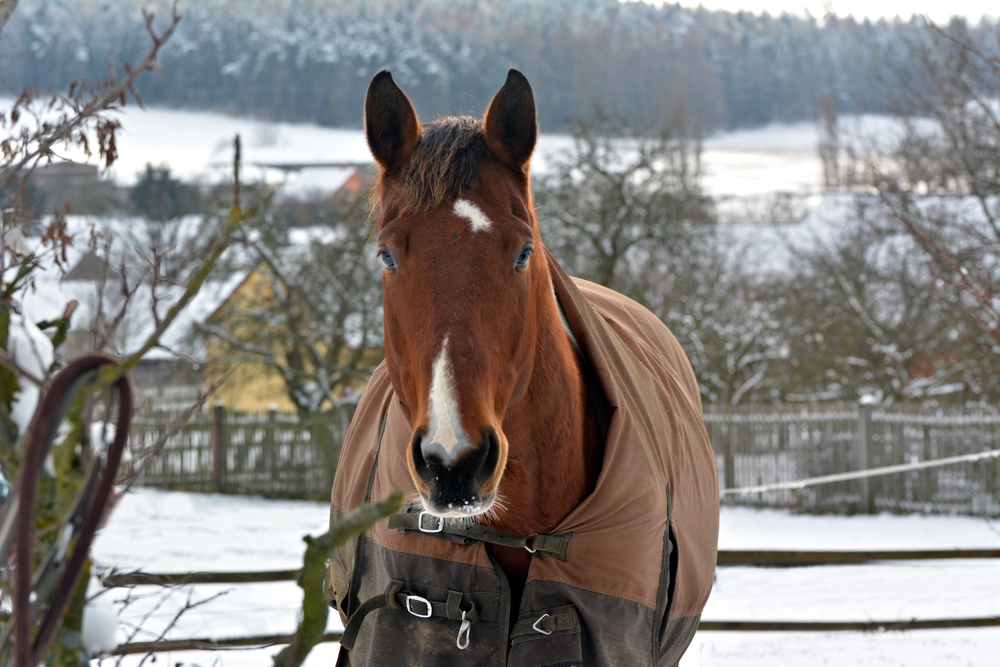With winter comes increased stable time and the risk of boredom which can lead to a greater chance of stereotypical behaviours. In the past behaviours such as crib biting have been seen to be a ‘vice’ however research now suggests that there are a number of other potential causes…
Crib biting, or wind sucking can be very debilitating to the horse and also cause physical damage to property. The horse will grab hold of a suitable surface, bite into it and give the appearance of sucking back – it often sounds like a gulp or a burp. Previously it was thought of to be a naughty habit and horses were often ‘blocked’ from doing it by collars and the removal of surfaces available. However research now shows that this behaviour is something that should be managed carefully rather than stopped.
The thinking is that the act of crib biting or wind sucking actually helps relieve digestive discomfort and soothe stress. The behaviour may begin due to digestive upset and then becomes a relaxing habit that is very hard to break. Cribbing is said to help produce excess saliva, which helps to buffer the stomach acid and relieve discomfort. However cribbing can also trigger issues such as colic and dental problems.
Management
Instead of stopping crib biting or wind sucking, it is better to get to the root cause of the behaviour. Investigating whether there is an underlying digestive concern is the first port of call and managing that condition through meticulous care. In addition, putting in steps to provide the horse with enough stimulation to occupy them and reduce the chance of the habit from taking hold.
Top tips for reducing boredom
• By allowing equines to carry out natural behaviour even when confined, horse owners can help curb stress levels and keep boredom at bay.
• It is important that a horse has access to plenty of good quality forage, such as hay or haylage, particularly if they are stabled overnight, to encourage natural trickle feeding. This not only supports healthy digestion, but aids mental stability and happiness, as horses have a natural, psychological need to chew.
• Many horse owners may choose to offer some restricted turnout, such as an hour in a sand school, pen or small paddock to allow the horse some freedom of movement, preferably with an another horse for company. However, if this is not viable, it is often best to stable horses next to each other, or at least in clear sight of others, so that they are not completely deprived of social contact and do not begin to feel too isolated.
• The stabled or part-stabled horse may also begin to develop negative behaviours, such as crib biting, weaving and wind sucking as a result of stress and boredom and exhibiting these stereotypical behaviours can become an addictive means of coping with being confined. A plentiful supply of correctly balanced nutrition is a solution to maintaining all-round health and reducing boredom before behaviour becomes a serious issue.

Supplementing the boredom
Horslyx is a great distraction for the stabled or part-stabled horse, that may begin to develop negative, stereotypical behaviours, such as crib biting, weaving and wind sucking as a coping mechanism for stress and boredom. Licking takes time so Horslyx is a great solution to reducing boredom before behaviour becomes a serious issue and Horslyx is the perfect indulgent, yet healthy lick. The palatable lick promotes a natural trickle-feeding pattern, allowing the horse to self regulate and consume Horslyx as and when it is needed, resulting in healthy digestion and lower stress levels. Horslyx is suited to even the fussiest of eaters or good-doers prone to weight gain, as the recommended daily amount of contributes a full ration of vitamins and minerals to the horse’s diet, while only providing a sugar level similar to two slices of hay. For greedy horses, the 5kg Holder is perfect to restrict consumption and also prevent wayward hooves and debris from spoiling the lick.

